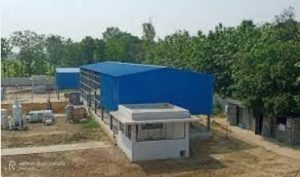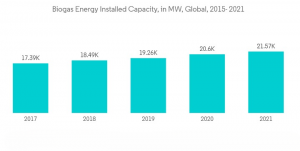
CBG, or compressed biogas, is a type of biogas that has been compressed to a pressure of 200-250 bar, making it similar to natural gas in terms of energy density and combustion properties. Biogas is typically produced through the anaerobic digestion of organic waste materials such as agricultural waste, food waste, and sewage.
Different Types of CBG/Biogas Business Models:
There are several business models for CBG/biogas production, including:
On-Farm Production: Biogas can be produced on-farm using agricultural waste, such as manure and crop residues. The biogas can then be used on-site for heating and power generation, or it can be sold to the grid.
Visit this Page for More Information: Start a Business in Biotechnology Sector
Community-Scale Production: Biogas can be produced at a community scale using organic waste from households, food waste from restaurants, and sewage from wastewater treatment plants. The biogas can then be used for heating, electricity generation, or vehicle fuel.
Industrial-Scale Production: Biogas can be produced at an industrial scale using organic waste from food and beverage processing plants, and other industrial facilities. The biogas can then be used for heating, electricity generation, or vehicle fuel.
Co-Digestion: Biogas can also be produced through co-digestion, which is the simultaneous digestion of different types of organic waste. This can increase the efficiency of the digestion process and the quality of the biogas produced.
Related Business Plan: The Fuel of the Future Compressed Bio Gas CBG Bio CNG plant Save Money and Help save Our Planet with This Eco-Friendly Fuel
Biomethane Injection: Biogas can be purified to biomethane and then injected into the natural gas grid for distribution or used as vehicle fuel.
Each of these business models has different costs and benefits, and the specific business model chosen will depend on factors such as the availability of organic waste materials, local regulations, and the intended use of the biogas.
Reasons behind Making CBG/Biogas Business Model in India:
Here are three main reasons why businesses should consider launching their own CBG/Biogas business model in India:
· There is a growing demand for cleaner fuel sources as India strives to reduce its dependence on fossil fuels.
· Biogas can be produced from any type of organic material - food waste, agricultural residues, etc., which makes it an environmentally friendly option compared to traditional gasoline and diesel fuels.
Read Similar Articles: BIOTECHNOLOGY AND BIOTECH SECTOR
· The Indian market is highly fragmented and lacks standardization at present; this could pose some challenges for businesses looking to enter the market quickly but still maintain high-quality standards. However, with experience and due diligence on part of the founders, these challenges can be overcome relatively easily.

Global Market Size:
The growth of the CBG/Biogas industry is mainly due to the increasing awareness about its benefits and increased demand for sustainable energy sources. This increase in demand has led to an expansion of the CBG/Biogas market into new regions, such as North America, Europe, and Asia Pacific. Furthermore, this growth is also attributed to factors such as rising environmental concerns and changing lifestyle habits among consumers. Some of the key players in this market include BP (British Petroleum), Engie Group (formerly GDF Suez), RWE AG (RWE German Utility), and Statoil ASA (Statoil Norwegian Oil Company).
Watch Video: Compressed Bio Gas CBG the Fuel of the Future Bio CNG Plant
The global market size for CBG/Biogas business models will grow from $10 billion in 2020 to $48.5 billion by 2025. That's an impressive growth rate of nearly 20%. This growth can be attributed to the increasing acceptance of these renewable energy sources across various industries. In particular, the food and beverage industry is estimated to be the largest consumer of CBG/Biogas worldwide.
Indian Market:
Currently, India ranks fourth in the world in terms of the installed capacity of biogas plants. There is a huge potential for the business of converting biomass into gas and selling it to utilities and industry. The Indian market has a population of 1.3 billion people, which means there is plenty of room for growth in this business sector.
Biogas production from human and animal wastes can reduce greenhouse gases by up to 90%. It also has potential applications in agriculture, forestry, manufacturing industries, and transportation.
Related Feasibility Study Reports: Compressed Biogas - Manufacturing Plant, Detailed Project Report, Profile, Business Plan, Industry Trends, Market Research, Survey, Manufacturing Process, Machinery, Raw Materials, Feasibility Study, Investment Opportunities, Cost And Revenue
India has a large population and abundant agricultural waste, making it an ideal market for biogas production. The Government of India has set a target of generating 6.5 billion cubic meters of biogas by 2022 through the National Biogas and Manure Management Programme (NBMMP) and other initiatives.
Government Efforts and Schemes to Promote CBG/Biogas Business Models:
The Government of India has implemented a number of policies and programs to promote the development of CBG/biogas business models in the country. Some of the key efforts and schemes include:
National Biogas and Manure Management Programme (NBMMP): This program is implemented by the Ministry of Renewable Energy and aims to promote the use of biogas as a clean and renewable source of energy. The program includes the construction of biogas plants, the distribution of biogas appliances, and the provision of technical and financial assistance to farmers and rural households.
Read our Books Here: Handbook on Biogas and Its Applications (from Waste & Renewable Resources with Engineering & Design Concepts)(2nd Revised Edition)
National Biogas and Organic Manure Programme (NBOMP): This program is implemented by the Ministry of Agriculture and aims to promote the use of biogas in agriculture, by encouraging farmers to set up biogas plants and use the biogas produced for cooking, lighting, and power generation.
Pradhan Mantri Ujjwala Yojana (PMUY): This program is implemented by the Ministry of Petroleum and Natural Gas and aims to provide LPG connections to BPL households to replace unclean cooking fuels. The program also aims to promote the use of cleaner and more efficient cooking fuels such as biogas.
Pradhan Mantri Kisan Urja Suraksha evam Utthaan Mahabhiyan (PM-KUSUM): This program is implemented by the Ministry of New and Renewable Energy and aims to promote the use of renewable energy in agriculture. The program includes the installation of grid-connected solar pumps and off-grid renewable energy systems such as biogas plants.
Watch other Informative Videos: India's Biotechnology Sector: How India is Reinventing the Future
National Biogas and Organic Fertilizer Production and Utilization Programme: The program is implemented by the Ministry of Agriculture and aims to promote the use of organic fertilizer produced from the biogas plant and to increase the efficiency of the digestion process.
These schemes and programs provide financial and technical assistance to farmers, rural households, and entrepreneurs to set up biogas plants and promote the use of biogas as a clean and renewable source of energy.
Conclusion:
In conclusion, CBG/biogas business models have the potential to provide clean and renewable energy while also reducing greenhouse gas emissions and managing organic waste.
Based on the information, it can be said that CBG and Biogas are not only good for the environment but also profitable. In fact, the profitability of these business models has made many investors enter this field.
A shift towards sustainable technologies such as biogas may become inevitable soon. The good thing is that these industries have now seen immense investment in the region, which means you too can make money with your idea! Just make sure you put new waste management processes in place before scaling up operations at an industrial scale to prevent any issues down the road.
Visit the page Select and Choose the Right Business Startup for You for sorting out the questions arising in your mind before starting any business and know which start-up you can plan.
We, at NPCS, endeavor to make business selection a simple and convenient step for any entrepreneur/startup. Our expert team, by capitalizing on its dexterity and decade's long experience in the field, has created a list of profitable ventures for entrepreneurs who wish to diversify or venture. The list so mentioned is updated regularly to give you a regular dose of new emerging opportunities.
Click here to send your queries/Contact Us
At NPCS, we pride ourselves on delivering the most accurate and up-to-date information available. Based on the information gathered from the NPCS reports, we can conclude that the CBG/biogas business model is a viable option for business and offers many potential benefits. Some of the key advantages of this business model include the ability to generate revenue from the sale of by-products, the potential to create new jobs, and the positive impact on the environment. To know more about NPCS reports, keep visiting our website.
Reasons for Buying NIIR Report:
● Our research report helps you get a detailed picture of the industry by providing an overview of the industry along with the market structure and classification.
● Our report provides market analysis covering major growth driving factors for the industry, the latest market trends and the regulatory framework of the industry.
● Our Report provides an analysis and in-depth financial comparison of major Players / Competitors.
● Our Report provides indispensable buyers' data with their company financials as well as the contact details, which can be an important tool in identifying the target customers.
● Our report provides forecasts of key parameters which help to anticipate the industry performance.
● We use reliable sources of information and databases. And information from such sources is processed by us and included in the report.
See More Links:
· Start a Business in Asia
· Start a Business in Potential Countries for Doing Business
· Best Industry for Doing Business
· Business Ideas with Low, Medium & High Investment
· Looking for Most Demandable Business Ideas for Startups
· Startup Consulting Services
· Start a Business in Africa
· Start a Business in India
· Start a Business in Middle East
· Related Videos
· Related Books
· Related Projects
· Related Market Research Reports
𝐂𝐨𝐧𝐭𝐚𝐜𝐭 𝐮𝐬
NIIR PROJECT CONSULTANCY SERVICES, DELHI
An ISO 9001:2015 Company
ENTREPRENEUR INDIA
106-E, Kamla Nagar, Opp. Mall ST,
New Delhi-110007, India.
Email: npcs.ei@gmail.com
info@entrepreneurindia.co
Tel: +91-11-23843955, 23845654, 23845886
Mobile: +91-9097075054, 8800733955
Website: https://www.entrepreneurindia.co
https://www.niir.org
DPP_20Art23